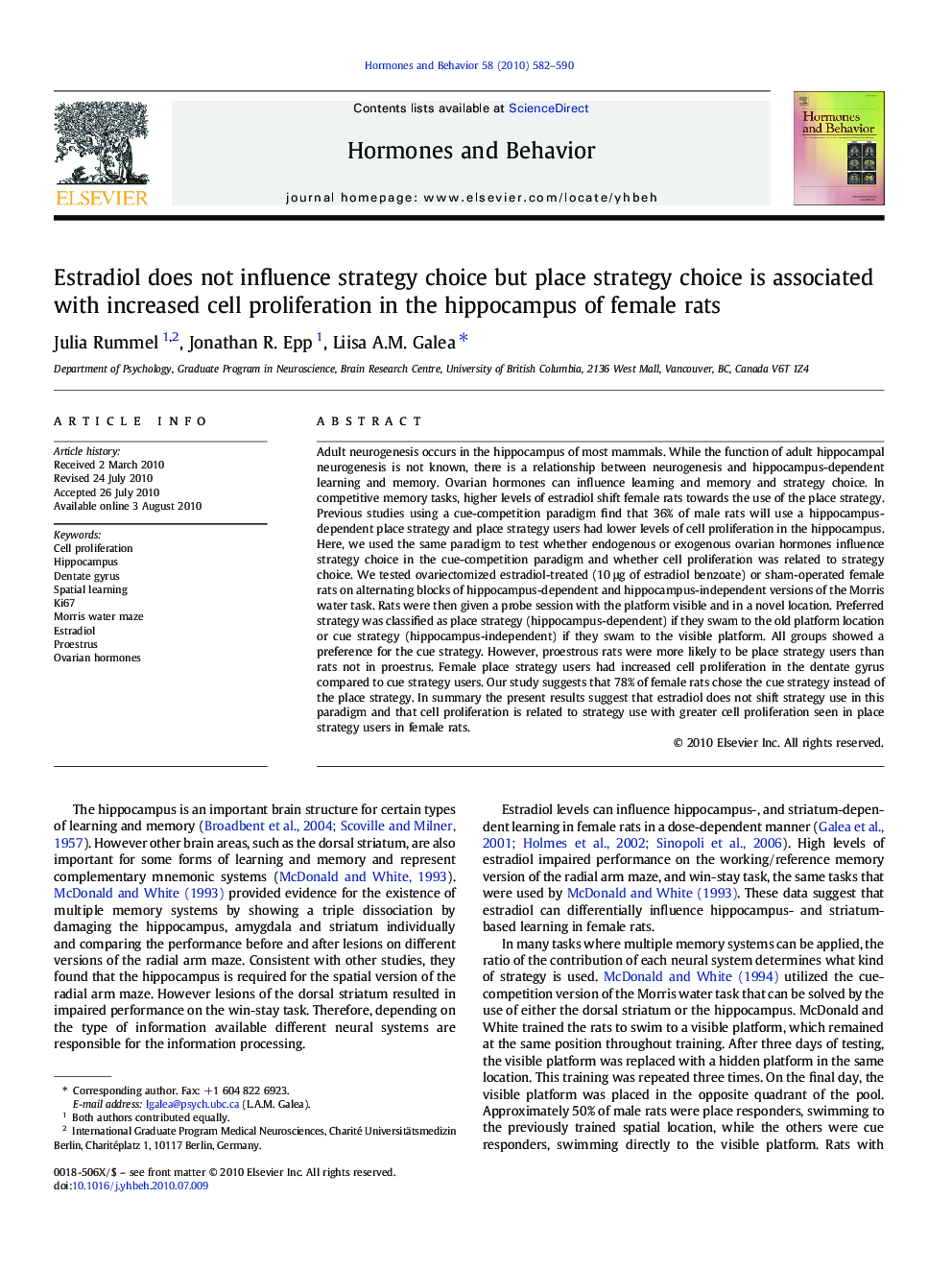| Article ID | Journal | Published Year | Pages | File Type |
|---|---|---|---|---|
| 324067 | Hormones and Behavior | 2010 | 9 Pages |
Adult neurogenesis occurs in the hippocampus of most mammals. While the function of adult hippocampal neurogenesis is not known, there is a relationship between neurogenesis and hippocampus-dependent learning and memory. Ovarian hormones can influence learning and memory and strategy choice. In competitive memory tasks, higher levels of estradiol shift female rats towards the use of the place strategy. Previous studies using a cue-competition paradigm find that 36% of male rats will use a hippocampus-dependent place strategy and place strategy users had lower levels of cell proliferation in the hippocampus. Here, we used the same paradigm to test whether endogenous or exogenous ovarian hormones influence strategy choice in the cue-competition paradigm and whether cell proliferation was related to strategy choice. We tested ovariectomized estradiol-treated (10 μg of estradiol benzoate) or sham-operated female rats on alternating blocks of hippocampus-dependent and hippocampus-independent versions of the Morris water task. Rats were then given a probe session with the platform visible and in a novel location. Preferred strategy was classified as place strategy (hippocampus-dependent) if they swam to the old platform location or cue strategy (hippocampus-independent) if they swam to the visible platform. All groups showed a preference for the cue strategy. However, proestrous rats were more likely to be place strategy users than rats not in proestrus. Female place strategy users had increased cell proliferation in the dentate gyrus compared to cue strategy users. Our study suggests that 78% of female rats chose the cue strategy instead of the place strategy. In summary the present results suggest that estradiol does not shift strategy use in this paradigm and that cell proliferation is related to strategy use with greater cell proliferation seen in place strategy users in female rats.
Research Highlights►Proestrous rats are more likely to use a place strategy than non-proestrous rats. ►Female rats prefer the use of a cue strategy over a place strategy. ►Female place strategy users have increased cell proliferation in the dentate gyrus.
